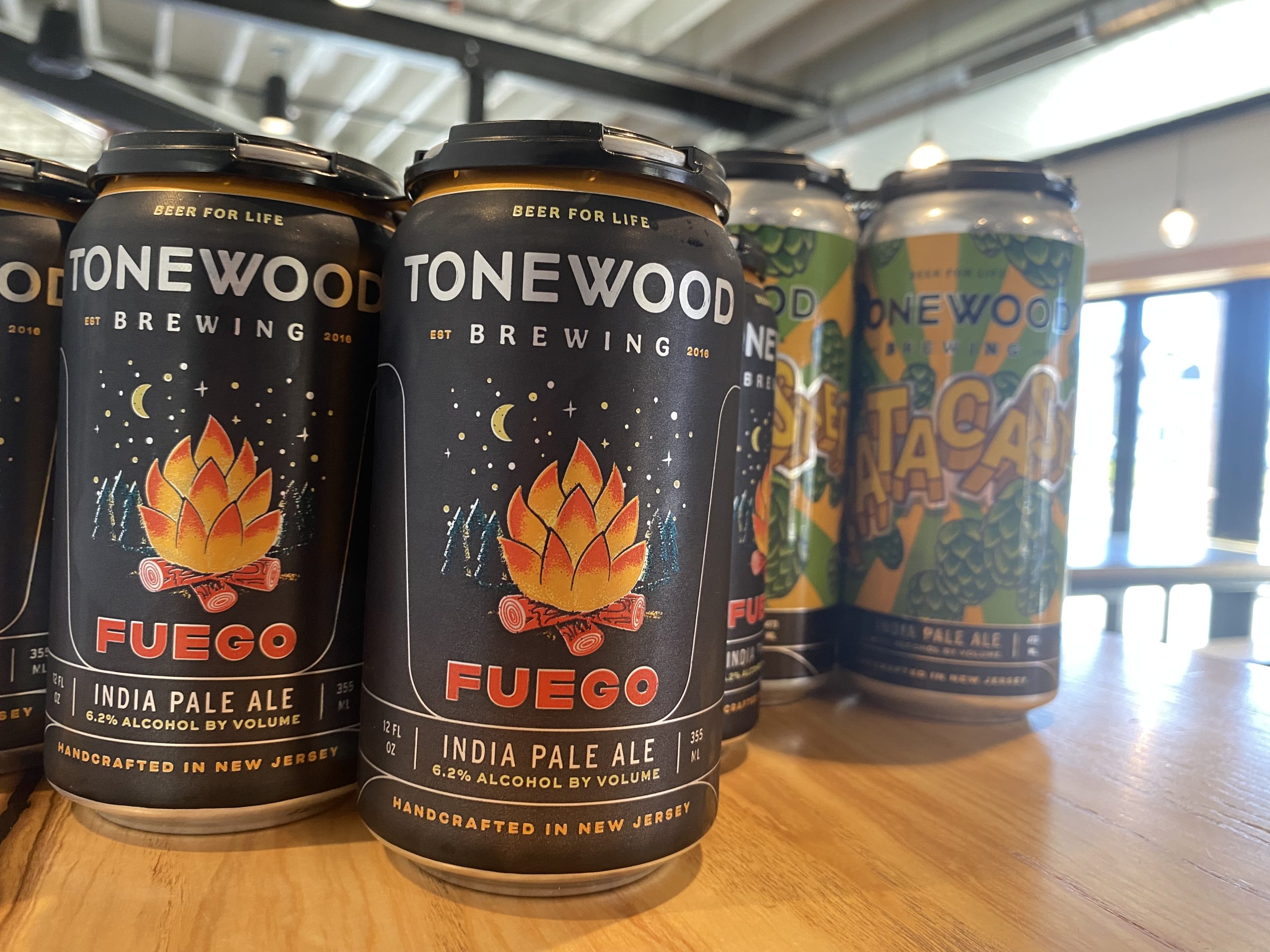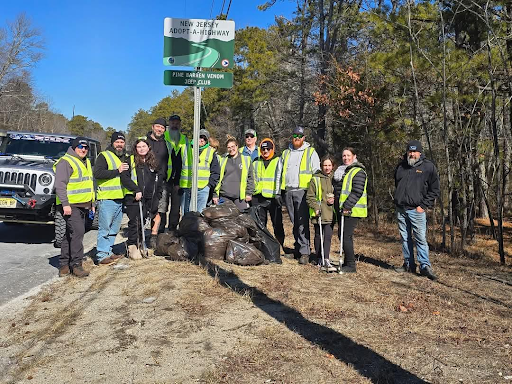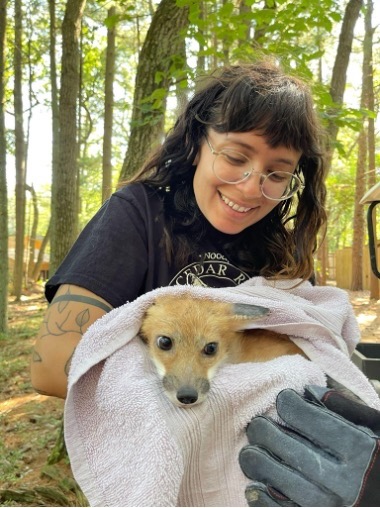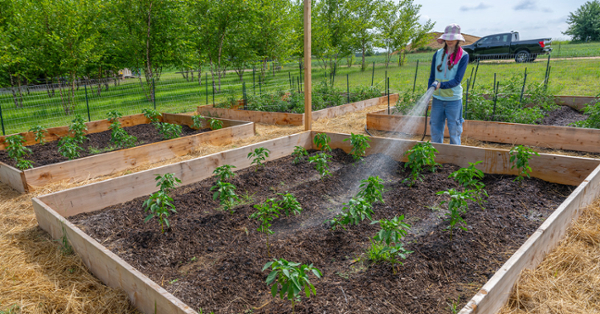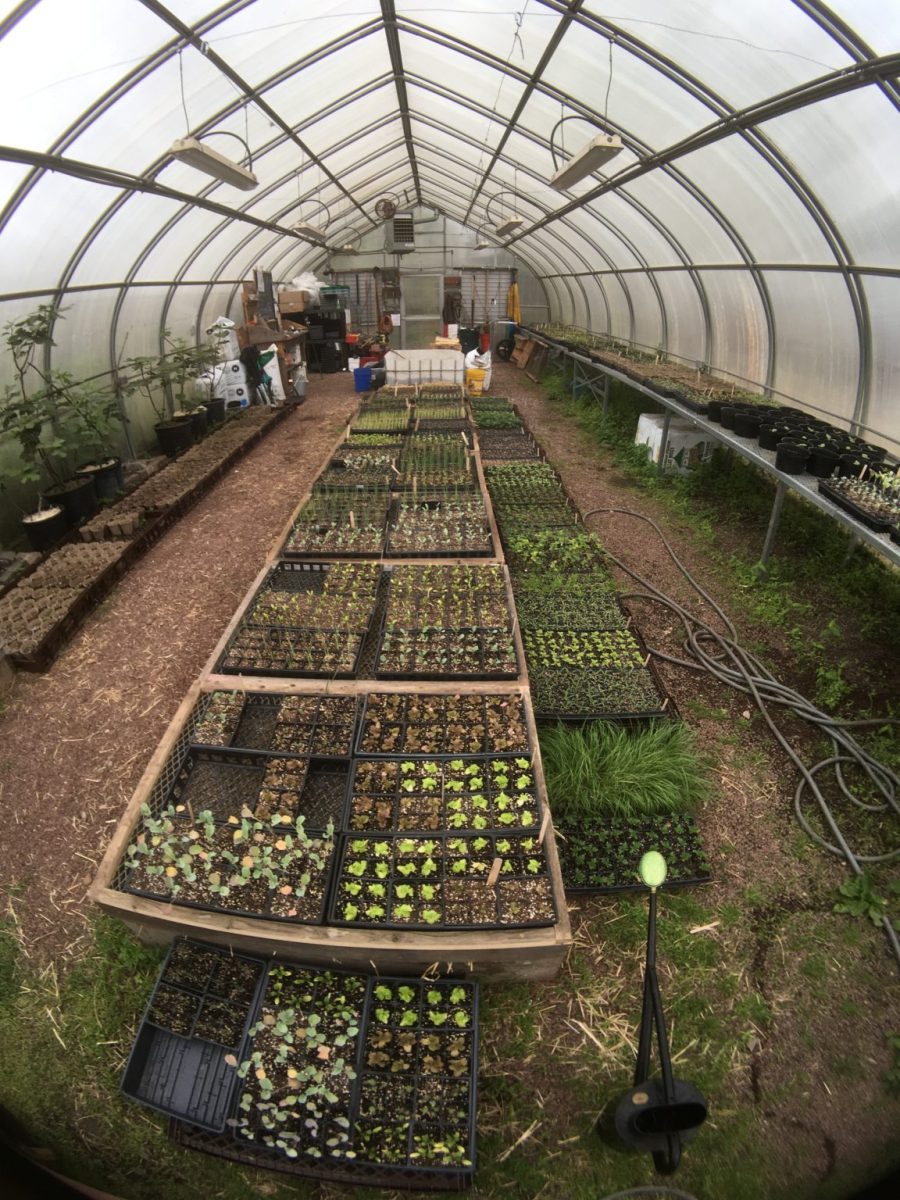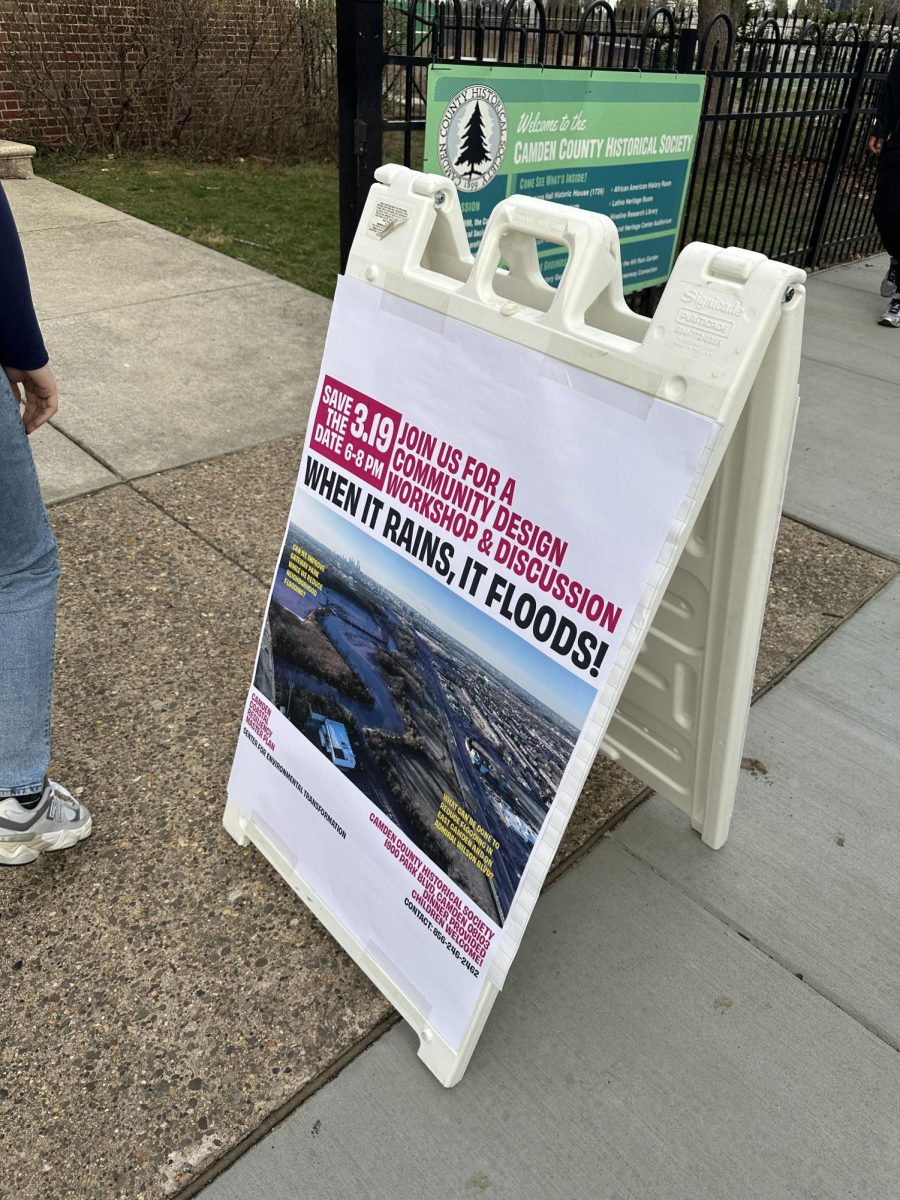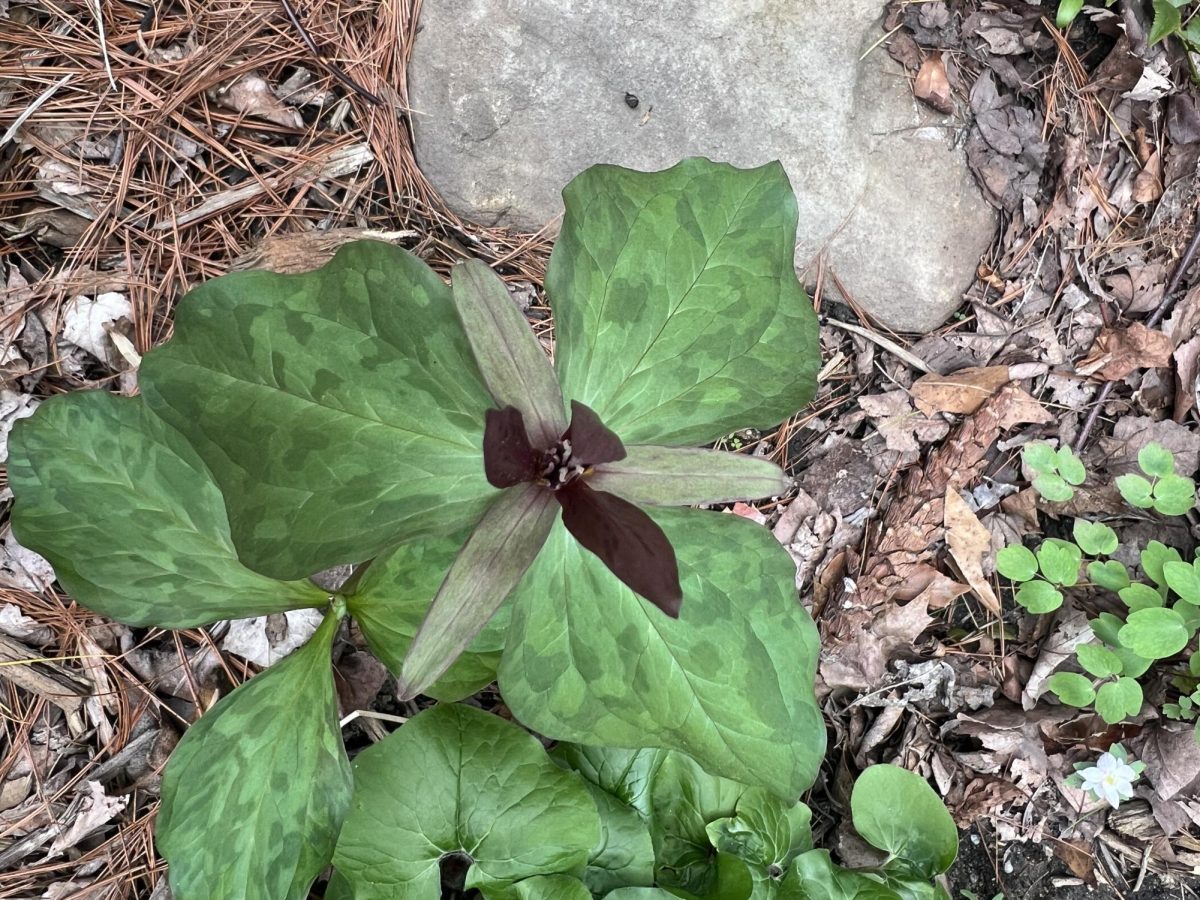When Tonewood Brewing wanted to expand their operations to a new location, environmental sustainability was a top priority. The owners were looking to repurpose an existing building, use solar to power their operations, and create a system to capture CO2 from the brewing process.
They found their dream location in a former family-owned lumber yard on the corner of Clements Bridge Road and East Atlantic Avenue in Barrington, a property that offered the room to grow and expand their eco-friendly agenda.
“When we toured this location, it presented all the things you look for when you are building a brewery,” said Tonewood’s head of brewery relations, Jacob Irving.
While reconstructing the location, Tonewood elected to revamp the structure, rather than level it out and start from scratch. This decision has left them with a unique facility that incorporates the history of the location, open floor brewing, and most notably, has allowed them to incorporate the sustainable practices they have long hoped to implement.
The immense roof space the building provided made the decision to invest in solar energy simple for Tonewood’s ownership group. Today, the brewery generates roughly 200-kilowatts of energy from its panels, which cover the entirety of the facility, as well as the location’s cold storage building.
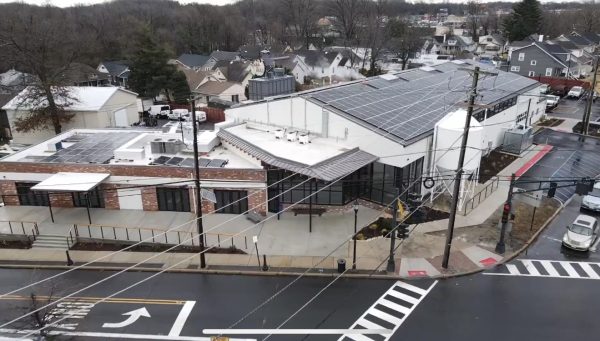
This is double the amount of energy needed to operate the business, which allows Tonewood to feed unused energy back onto the local electrical grid.
“Both financially and environmentally speaking, it’ll be beneficial for us and our community in the long run,” Irving said.
When beer is fermented, it produces ethanol and carbon dioxide gasses, which play an important role in the brewing process. The emission of these gasses also contribute to global warming.
According to an industry research report conducted by IBIS World, most of the carbon dioxide found in the world today is generated by burning fossil fuels (factories and automobiles), but an estimated 20% of it is produced in other areas, including food and beverage processing.
Earthly Labs, an equipment manufacturer, has developed a carbon capture system that recaptures the excess ethanol and carbon dioxide as it comes out of the fermenter, heats it to 500 degrees Fahrenheit, and then instantly chills it down to a negative temperature. The end result is liquid gas, which is held in a holding tank on the property and can be used for packaging, carbonation and to push the beer through lines.
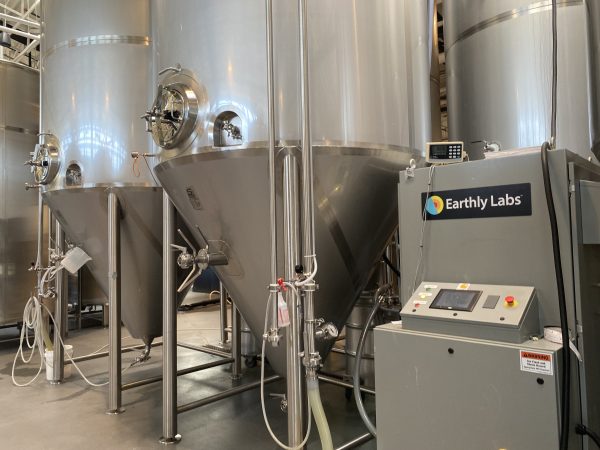
By incorporating this recapture system, Tonewood is distancing themselves from the industrial-level carbon dioxide emissions that an overwhelming majority of breweries produce.
“It feels like these are the right things to do,” said Irving. “The process of making beer takes up a lot of resources. It’s heat, water, grain, and energy. So, it’s nice to invest in things that are more cost effective for us, but also limit environmental impact.”
Many breweries across the country are increasingly conscious of the health of our planet. And some local New Jersey brewers like Tonewood, Flying Fish and others are pioneering the use of solar energy, carbon dioxide capture techniques, using local ingredients, the reuse of brewing byproducts and smart water usage.
Forging a Rewarding Relationship between Local Farmers and Brewers
Founded, owned and operated by the Galie family, Lower Forge Brewery in Medford, has a family feel, and offers a variety of different beers. But it is their commitment to sustainability and their innovative nature that has set them apart from the rest when it comes to “going green.”
Co-owner and brewer, Paola Galie, has advocated for the preservation of state forests and parks in the Medford area for as long as she can remember. She and her son, co-owner Sean Galie, have carried Paola’s passion for sustainability directly into their brewing process.
“We generally try to source all of our ingredients locally whenever possible,” said Sean Galie. “Whether that’s talking to local farmers in Burlington or Cumberland County, or even taking inspiration from local history.”
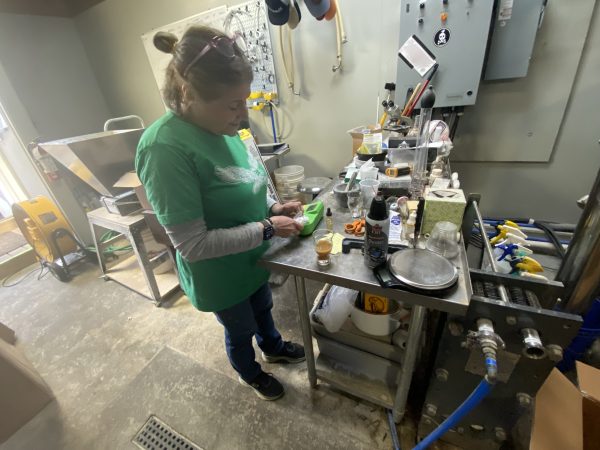
Lower Forge is certified under the Jersey Fresh Agricultural initiative, and they make everything on tap with New Jersey grown grains from a Cumberland County maltster, Rabbit Hill Farms. Additionally, Lower Forge sources its cranberries and blueberries from Whalen Farms, located in Shamong.
Lower Forge’s relationship with local farmers doesn’t end there. Once they’ve used the grains, the brewery sends them to local farmers, who use it for animal feed or composting.
“We have a group of farmers that we rotate through,” said Paola. “We’re never going to let our excess grind reach a landfill.”
On top of their commitment to withhold their waste from landfills, Lower Forge is constantly exploring new ways to utilize spent grains. This includes working with local farmers, Rutgers New Jersey Agricultural Experiment Station (NJAES) Cooperative Extension personnel, and Rutgers Master Gardeners, to develop a natural repellent from the byproduct for New Jersey’s hazelnut crop, which is a favorite food of whitetail deer.
If we don’t embrace these practices, we will live in a world where a small brewery has to sell a $10 glass of beer, which is not sustainable. Environmental sustainability is in a sense business sustainability.
Once fully developed, this innovation could limit the amount of grain waste in landfills and at the same time reduce the amount of hazardous chemicals currently used to prevent crop destruction by deer and other animals.
Yet another passion project of the Galie family involves converting the brewery’s spent yeast into plant nutrients.
Some California-based brewers are on the beat of a similar trend, looking to develop a powerful and environmentally safe plant nutrient from the product, which is a common byproduct of the brewing process. If they are successful, Lower Forge estimates it could reduce its solid waste by 100 pounds a month. If they can export their approach to other and larger breweries, it could have a significant impact.
“There’s a lot of potential there if we nail it, and it’s adopted by large-scale brewers,” said Sean Galie. “It could dramatically reduce the solid waste associated with brewing.”
Conserving Water While Brewing Craft Beer
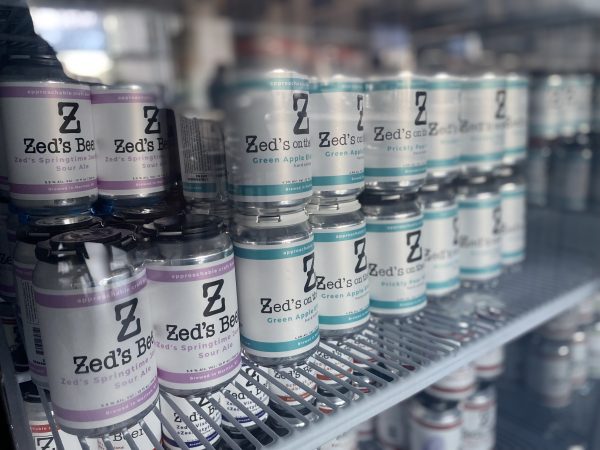
Beer is mostly water. And so brewers use a lot of it and create a lot of waste water in the process.
According to the Brewers Association Water and Wastewater Treatment Manual, in some towns, “breweries may be the largest consumer of water and the largest source of organic effluent that must be treated by the municipal treatment plant.”
Such a challenge presents unique supply and cost concerns for local brewers and their communities.
The process of making craft beer can be taxing for the planet. By rethinking the process, breweries have an opportunity to significantly lessen their environmental footprint.
Zed’s Beer, located in Marlton, New Jersey has made reducing water usage, as well as cutting the use of caustic chemicals during the cleaning process, a top priority.
Co-owner and head brewer, Geoff Bado, creates approachable craft beer, all while maintaining environmental consciousness — something he has prioritized throughout his life.
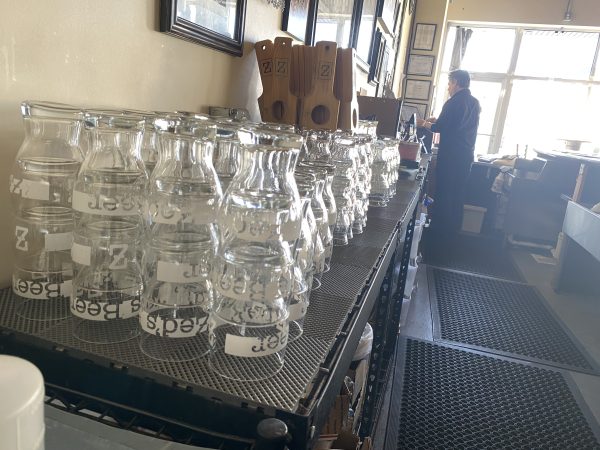
“In my former life, I worked in advertising,” said Bado. “In that role, I had the opportunity to have an impact on the equipment we were using, from the camera film, incorporating solar, and banning plastic water bottles. It has always been ingrained in me; it’s natural I continue on with that.”
Something as simple as eliminating the use of a hose to clean the brew room floor and instead using a mop or broom can save a substantial amount of water.
“Whenever I see the process of most breweries, the place I see room for improvement is the clean-up,” said Bado. “Water is not a broom; many breweries push down grain and debris with a hose rather than a broom.”
It is impossible to make beer without a significant amount of water. For every barrel of beer, Bado said, you need three-to-four barrels of water. Cleaning is no less water intensive, so Dado has installed equipment in the brewery’s 240-gallon tanks that require only 30 gallons of water to clean.
Taking it a step further, Zed’s also reuses its cleaning mixture multiple times — including to wash the floors at the end of the day. Additionally, while it’s essential to use certain chemicals in order to provide a safe drinking experience for the brewery’s customers, Dado elects to use “less extreme caustics,” which ultimately means less toxins going down the drain.
The process of making craft beer can be taxing for the planet. By rethinking the way energy is acquired, reusing existing entities to avoid the necessity of additional sourcing, working with local food and grain suppliers and remaining conscious of water usage, breweries have an opportunity to significantly lessen their environmental footprint.
“We’re open to sharing our ideas when it comes to sustainability, mostly because it’s the only way small breweries in New Jersey will survive,” said Sean Galie of Lower Forge. “If we don’t embrace these practices, we will live in a world where a small brewery has to sell a $10 glass of beer, which is not sustainable. Environmental sustainability is in a sense business sustainability.”
